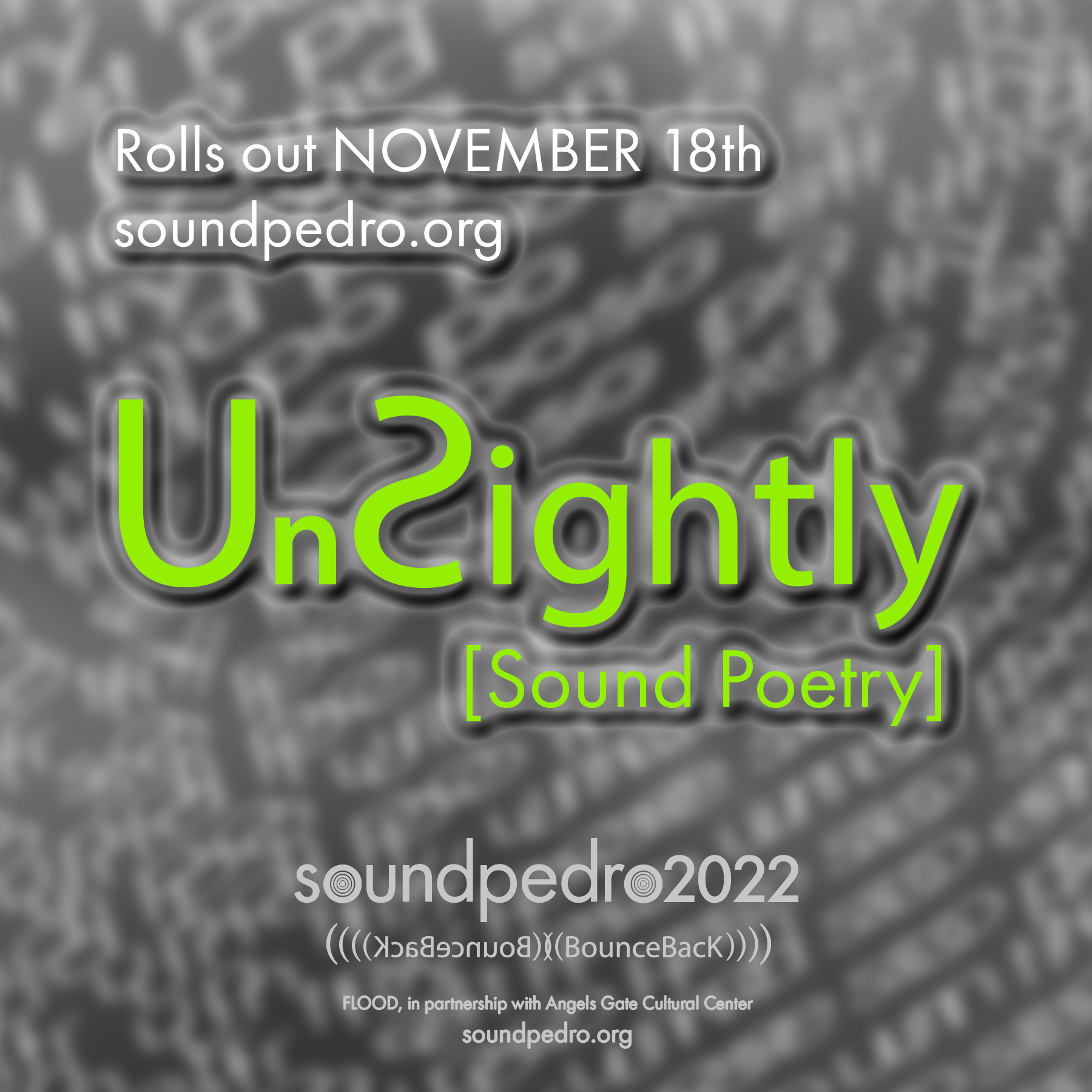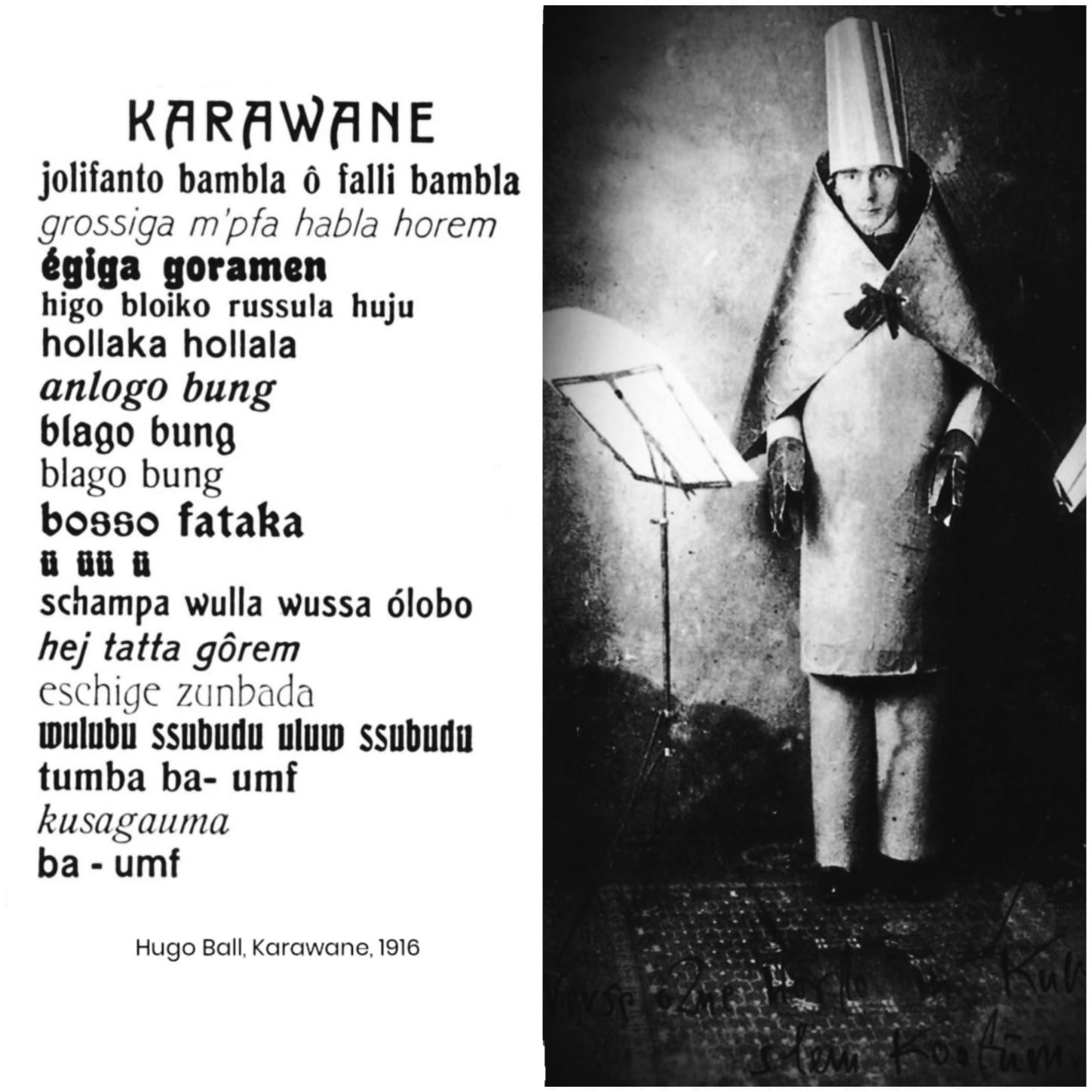Sound Poetry 2022

UnƧightly [Sound Poetry]
A juried selection from soundpedro artists of sound poems, from classic recitation to speecherly encryption.
Video presentation goes public at noon on Friday, November 18th
my friends - Aglaíze Damasceno (00:06)
Teee Rayee - Dani Lunn (01:16)
Vowel Trio Catalog - David Kendall (01:52)
Woork of Art - Jim Andrews (02:53)
Pace Babbling - Leeqsol Mullein (03:42)
AHKESPLUM - Mystic Elevator (05:16)
Something Nonsensical - nostoppinganytime (05:51)
Free Shadow Boxing Lessons - ok nephew (06:54)
Sound Poem “Dictator's Signature” for voice solo, or other sounds. - Shih-Lin Hung (07:43)
Ending (10:08)


FLOOD invited artists to submit sound poems in honor of Hugo Ball (died September 14, 1927), creator of "Karawane," (Cabaret Voltaire, 1916). We requested recitations of an original sound poem or of another's work, with a deadline of October 17th in recognition of Zang Tumb Tuuum: Adrianopoli ottobre 1912: Parole in libertà (Zang Tumb Tuuum: Adrianople October 1912; Words-in-Freedom) an evocation of the sounds of mechanized war.
Sound poetry occupies the overlap zone between music and speech. It seeks to capture the musicality of language free of any meaning. It is language abstracted to the point of not belonging to any language group or family. It approximates or appropriates the sounds of language; it may turn any sound into a sonic approximation of language.
Keep in mind that a continuous strand of "traditional" onomatopoeia does not constitute sound poetry (e.g. "POW KABOOM POP etc."). These words can be part of a poem but do not constitute the whole thing.
Reference/examples:
Sound Poetry on Wikipedia
Video intepretation of Hugo Ball's Karawane. Excerpt from 100 Years Dada, Rechte bei Arte, Johannes Gees.
17 recordings of Karawane by Hugo Ball read by LibriVox volunteers.
Marie Osmond - yep, that one - recites Karawane.
